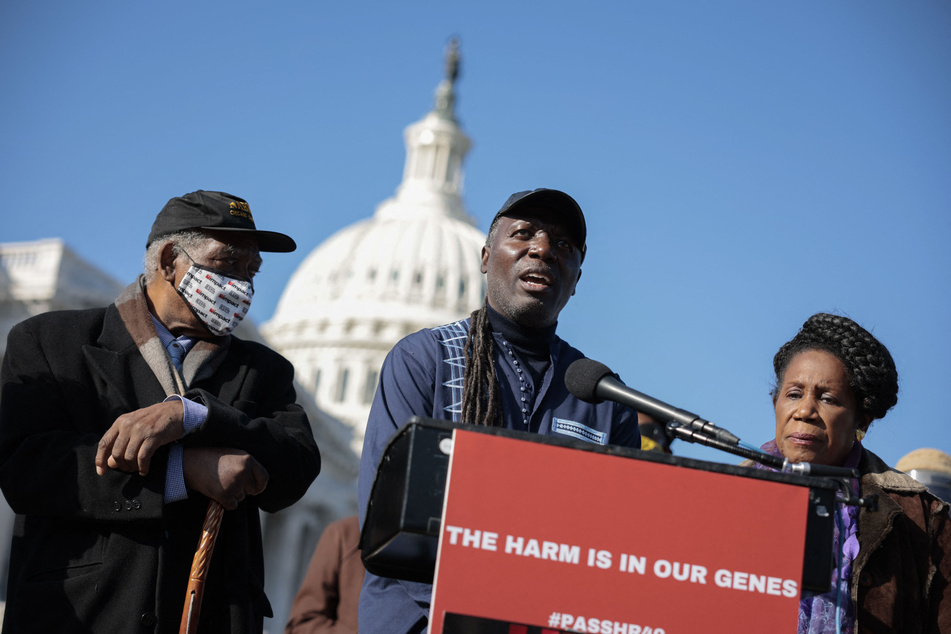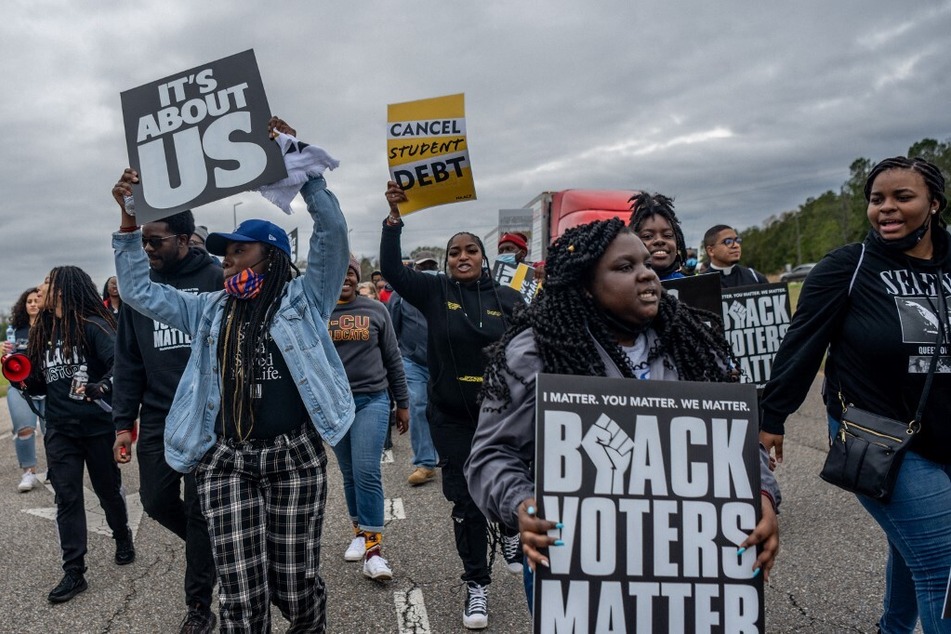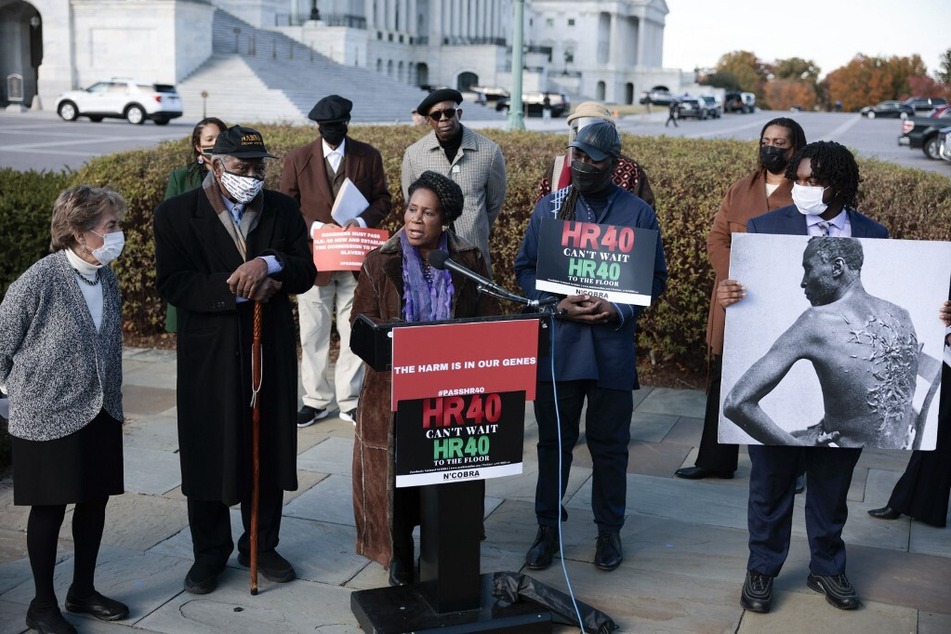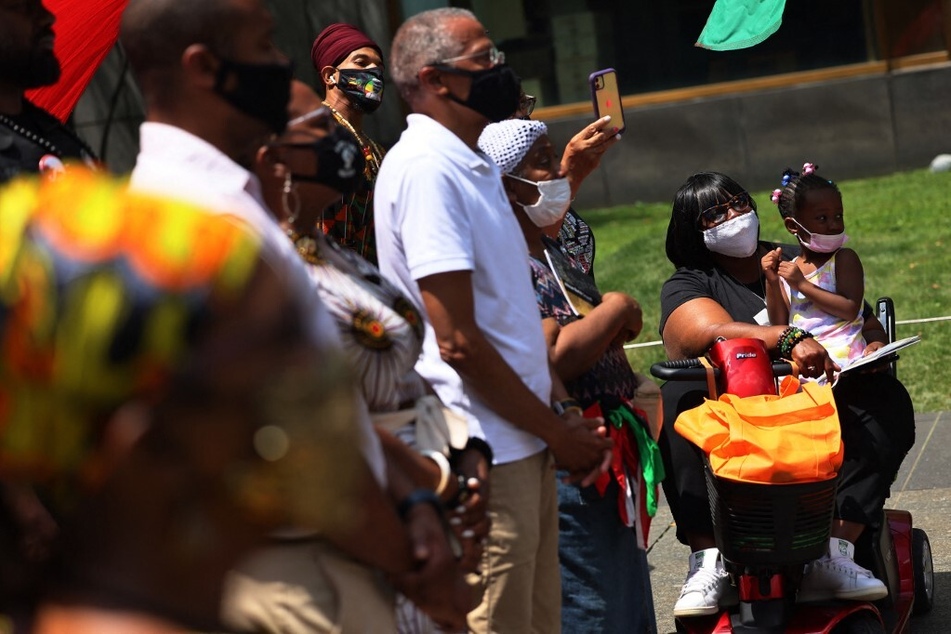Black History Month: The mission, the mandate, and the method for reparations
Chicago, Illinois - This Black History Month, racial justice advocates are demanding the swift enactment of a US reparations commission. TAG24 NEWS spoke with activist and leader Kamm Howard about the mission, the mandate, and the method for federal redress.

Going into 2023, activists are calling on the federal government to address the harms inflicted on Black people in America over generations by urging President Joe Biden to establish a reparations commission via executive order during Black History Month.
"We should not go another day without reparations, without some meaningful commitment to repair for Black people in this country," Kamm Howard, director of Reparations United, told TAG24 NEWS.
"Black History Month is a month we use not only to celebrate, but also to commemorate past struggles and rededicate ourselves to current and future struggles," he continued. "A lot of times people think Black History Month is just about celebrating the past and accomplishments made in America – and those are good things to do – but more so, it's the struggle for the right now and the future."
The past and present evils of chattel slavery, Jim Crow, mass incarceration, police brutality, predatory lending, and more continue to negatively impact living conditions for Black people in the US today. Reparations advocates believe direct measures are required to help heal the damage and deliver on a demand over 400 years in the making.
"There is no more pressing issue in Black America right now than redress for the crimes that were committed," Howard insisted.
The Mission

With more than 16 years' experience in the US reparations movement, Howard is taking the next step toward justice through his recently launched Reparations Unity Tour, during which he is set to visit more than a dozen cities across the country from late January through March. His meetings center around one primary mission: securing federal redress.
Crucial to winning a national reparations commission, Howard believes, is understanding the power of the Black vote and how to wield it.
Looking at presidential elections from 1960 to 2020, Howard says every Democratic president – with the exception of Lyndon B. Johnson – only came into office thanks to the Black vote. Since that time, the majority of the white vote has gone to the Republican Party, except in 1964.
Additionally, Howard has found that Democrats would have won seven out of eight of their past presidential victories if you exclude other racial minorities and just look at the Black and white votes, but Democrats would have won none of those without the Black vote.
Black Americans, who account for around 20% of Democratic votes, are the second-largest contingent in the party and routinely push blue candidates over the top. Nevertheless, Black demands for repair are steadily ignored by those same candidates once they take office – an oppressive pattern Howard is trying to break through his educational initiative.
"The numbers show, going forward, the Democratic Party would never win another election without the Black vote," Howard said. "The Democrats must know we have this power and we'll use it. If they know that we have it and will use it, they will have to capitulate. Other than that, they'll keep on keeping on, taking the Black vote and giving us lip service."
"The mission is to coerce the Democratic Party into our demand for redress via an executive order, or we think about moving to a third party."
The Mandate

The next element of Howard's tour focuses on the mandate for reparations, embodied in the legislation HR 40, the Commission to Study and Develop Reparation Proposals for African Americans Act, and its Senate companion bill S 40.
HR 40, whose revised language Howard helped to draft, secured a record number of co-sponsors in the 117th Congress amid the overwhelming international outcry following the police murder of George Floyd. Though Democrats had control of the House, Senate, and presidency, and grassroots support behind reparations was surging, lawmakers failed to move the legislation forward.
Going into Black History Month, both pieces of legislation have been reintroduced in the new Congress, but advocates are directing their energies toward the president in hopes of securing an executive order.
In speaking with people about the push for the commission, Howard acknowledged there are a lot of common misconceptions about its scope. One of the most prevalent myths he encounters suggests that HR 40 simply calls for a study of ongoing racial injustice without any meaningful steps for action.
Instead, Howard explains that the commission is tasked with studying the crimes committed during enslavement, Jim Crow, and present-day America, examining the continued impact of those injuries, and crafting proposals to address those harms.
"We believe that the bill, in a nutshell, is mandated to present a master plan for redress for Black Americans," he said. "Then we have to fight for resources."
The Method

The final piece of the puzzle concerns the method for securing federal redress, which Howard envisions as unity.
On his tour, Howard is speaking with Black communities about current divisions within the US reparations movement, which he said usually fall into three categories: the form repair will take, eligibility for reparative measures, and discussions about identity.
Establishing a commission is the first step to addressing these points of contention, Howard believes, and he encourages Black Americans to organize around the particular forms of repair they want to see once such a body is created.
Howard also points out that centering discussions on eligibility before a commission has a chance to develop its proposals is like putting the cart before the horse. He added that HR 40 does not seek to obscure the disproportionate damage suffered by people who descend from victims of the Transatlantic Slave Trade.
"The proposal is going to dictate the eligibility," he explained. "If you weren't impacted by predatory lending, you're not going to be eligible. If you weren't impacted by enslavement because your ancestors weren't here during enslavement, you won't be eligible for that particular remedy."
Lastly, Howard notes that HR 40 seeks to repair the harms for all African Americans, whether they choose to identify as American Descendants of Slavery, Foundational Black Americans, Freedmen or Freedwomen, or any other designation.
While it is acceptable to have differences in these areas, Howard said it is necessary to focus first on securing a federal reparations commission with a united voice so the demand for redress can no longer be ignored.
"We're continually impacted by the crimes of this country that have been committed against us, and that impact will continue over generations unless targeted resources are directed toward the continued impact," he said. "We shouldn't be waiting another day."
Cover photo: Anna Moneymaker / GETTY IMAGES NORTH AMERICA / Getty Images via AFP

